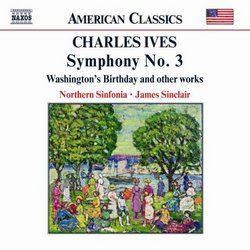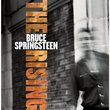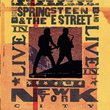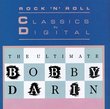| All Artists: Charles Ives, James Sinclair, Northern Sinfonia Title: Ives: Symphony No. 3 Members Wishing: 0 Total Copies: 0 Label: Naxos American Original Release Date: 1/1/2003 Re-Release Date: 2/18/2003 Genres: Special Interest, Classical Styles: Marches, Historical Periods, Modern, 20th, & 21st Century, Symphonies Number of Discs: 1 SwapaCD Credits: 1 UPC: 636943908723 |
Search - Charles Ives, James Sinclair, Northern Sinfonia :: Ives: Symphony No. 3
 | Charles Ives, James Sinclair, Northern Sinfonia Ives: Symphony No. 3 Genres: Special Interest, Classical
This is a fine selection of Ives's works. The Third Symphony has wonderful folk sounds and hymns to latch on to, while the raucous "Country Band" is a warm-yet-all-too-true invocation of the mediocre town bands that play b... more » |
Larger Image |
CD DetailsSynopsis
Amazon.com This is a fine selection of Ives's works. The Third Symphony has wonderful folk sounds and hymns to latch on to, while the raucous "Country Band" is a warm-yet-all-too-true invocation of the mediocre town bands that play badly but with great oomph. "Central Park in the Dark" is alternatingly spooky and impressionistic, the latter as sounds from outside the Park creep in. "Washington's Birthday" is the CD's most dissonant piece--hardly fun--in the middle of which Ives gives us some square-dance rhythms and the sound of a Jew's harp. "The Unanswered Question" is justly famous, a conglomeration of sounds and instrumental groups, which, in its four and a half minutes, says a great deal. These performances are all excellent, and for those who want a sort of Ives sampler, this bargain CD is ideal. --Robert Levine Similarly Requested CDs
|
CD ReviewsCharlie done right. Part II. Bob Zeidler | Charlton, MA United States | 03/10/2003 (5 out of 5 stars) "Naxos is sometimes criticized on various counts: Obscure, royalty-free repertoire, 2nd-tier (or lower) orchestras, with little-known conductors, bargain-basement production values, etc. For the most part, this is a bum rap; Naxos is no different in this respect than the major full-price labels, which put out their own share of turkeys. And, when Naxos is "on," as it often is, it can be downright unbeatable. A case in point is the Naxos critical-edition releases of the music of Charles Ives. The CD under consideration here is the second in a series. (The first was the recording of the Ives 2nd Symphony and the Robert Browning Overture, with Kenneth Schermerhorn and the Nashville Symphony Orchestra.) There is no issue regarding royalty or production-values shortcuts with these CDs, nor is there any about the authoritativeness of the performances or the sound quality. Any full-price label would be proud of such releases. The main work here is Ives's Symphony No. 3, written in 1901-1904 but never performed until 1946, with Lou Harrison conducting the New York LIttle Symphony. The following year the Symphony won Ives the Pulitzer Prize for music. It might well not have happened. A Columbia University student recorded the work off his radio during the Harrison broadcast, and played it for interested Columbia musicians, by way of which notice got to the Pulitzer committee. (While this series of events came perilously close to "almost didn't happen" status, there is another event, not as well-documented but more fascinating for what might have been. In 1910, when Gustav Mahler was the music director of the New York Philharmonic-Symphony, he visited Ives's copyist in New York and apparently left the shop with a "fair copy" of this score. Within a year, Mahler was dead. We can only guess how Ives's musical fortunes might have been different, had Mahler performed this work.) The Third Symphony is the first of Ives's symphonies to totally break free of the Germano-centric traditions instilled in him by his father and by Horatio Parker, his mentor at Yale. It is uniquely "American," and couldn't have been written by anyone other than Ives, yet it lacks the iconoclastic idiosyncrasies usually attributed to Ives. (It may well be these features which attracted Mahler's attention.) Because of this, it may well be his most accessible work for the Ives newcomer. It is certainly one of his gentlest and most serene works, aided in good part by Ives choosing to lightly score it for small chamber orchestra. Over the years, I've had several recordings of this work, going all the way back to Howard Hanson and the Eastman-Rochester Orchestra and including all the well-regarded ones by Bernstein and Tilson Thomas. (I've never been able to warm up to Tilson Thomas's Concertgebouworkest recording. To me, despite his obvious Ivesian knowledge, the performance just doesn't catch fire; the Dutchmen just don't seem to "get it.") None of them can match this new effort by James Sinclair (and the British Northern Sinfonia is not a handicap to him). This is a pellucid performance of great warmth and transparency, nicely flowing and lyrical as it should be. I especially enjoy the "retouchings" done by Sinclair in judiciously restoring some - but not all - of the "shadow lines" (submerged, much softer chromatic lines that Ives had penciled in for Harrison's premiere performance which were overlooked when Harrison premiered the work and prepared its initial publication). The effect on the richness of the music is subtle but telling. And - at the end of the work - where Ives has chimes softly tolling in the background - these chimes are rendered perfectly; almost subliminally as I would guess had been Ives's intent. Sinclair's recording immediately goes to the top of my list for best realization of this quintessential Ives work. The rest of the album, while more along the lines of what most think of when they think of Ives the iconoclastic, collage-like composer, is, performance-wise, all of a piece with the symphony. One of Ives's true masterpieces - "The Unanswered Question" - sounds as well as I've ever heard it. Ives revised this early work well after its premiere, altering the trumpet line so that it sounds more "engimatic." Sinclair takes this a mild step further, splitting the "answering" notes assigned by Ives to four flutes into pairs of flutes and clarinets. It adds a bit to the coloration, and in reality provides not a second, but a third, version of this masterpiece. The other "fillers" are equally splendid. Sinclair's "Central Park in the Dark" also goes to the top of my list for this impressionistic, near-atonal work. Much of Ives's music is all about space and distance, and the bar-room piano heard very faintly in the background truly gives this sense of space, as well as a sense of evening mist in the park. Superb! There is s duplicate of a work Sinclair has recorded before, on the Koch Classics label: The "Country Band March." There's little to choose between them: They finish in a dead heat. Even the poor lone saxophone at the end, who failed to finish with the rest of the band. The booklet notes are beyond superb. It didn't take long, reading into the notes, for me to guess who wrote them: The style, detail, and warmth with which the author wrote were dead giveaways. When I turned to p. 4, there it was: Jan Swafford, who wrote the sympathetic Ives biography, "Charles Ives: A Life With Music." (Strangely, though, Swafford fails to mention either the Pulitzer or the possible Ives-Mahler connection, something of only endnote merit in his biography but of continuing fascination to me.) I can only heap more praise on top of my earlier praise of the Schermerhorn/Nashville CD in terms of the attention that Naxos lavishes on these releases. They don't HAVE to do it this way. But I sure am glad that they do. Bob Zeidler" An Introduction to Charles Ives Robin Friedman | Washington, D.C. United States | 05/06/2003 (5 out of 5 stars) "Charles Ives (1874-1954) remains in his originality, sense of adventure and exploration, patriotism, and spirituality the quintesential American composer. This CD features an excellent selection of orchestral works from various stages of Ives's career and makes an outstanding introduction to this composer. The CD features the NOrthern Sinfonia, a European chamber orchestra conducted by James Sinclair, a specialist in Charles Ives. The performances are outstanding and make Ives's diffuse and obviously difficult scores hang together well. Jan Swafford, the author of the acclaimed biography, "Charles Ives: A Life with Music" wrote the informative program notes. This CD is part of the Naxos "American Classics" series and sells at a bargain price. It is impossible to go wrong with this CD. The listener will discover an American master.Virtually all Ives's music, particularly the selections on this CD, is programmatic in character. This disc opens with the Third Symphony, "The Camp Meeting" written in 1904. Ives described this work as "a kind of crossway between the older ways and the newer ways." The Symphony describes a moment of American revival with gospel melodies such as "Just as I am" interlacing the texture of the work. The three movements are titled "Old Folks Gaterin'", "Children's Day" and "Communion" with the first two movements rather lyrical and straightforward and the third movement denser in character. This is an eloquent, accessible work.I think the highlight of the CD is the "Two Contemplations" titled "The Unanswered Question" and "Central Park in the Dark" which Ives wrote in 1906. These are probably Ives's best known compositions. Swafford's notes aptly describe this music as "visionary". These pieces are collages and almost atonal in character, unlike the lyrical, tonal, Symphony No. 3. "The Unanswered Question" features movements of winds and trumpet over a repeated, muffled string figure. The piece is only four minutes long and it is brooding and spiritual. "Central Park in the Dark" is slightly longer and features the same type of brooding, contemplative themes juxtaposed with the noises and hurly-burly of New York City. This music will bear repeated listenings.There are also short two early compositions on this CD, "Country Band March" and the "1776" Overture and March which capture Ives's patriotism, humor and love of amateur music-making.The final selection on this CD is "Washington's Birthday" written in 1909. This work has a quiet, meditative beginning which encourages the listener to reflect on Washington and his significance. The meditative portions are interspersed with a lively, rowdy barn dance.Many people have too little awareness of American achievement in art music. This CD will introduce the listener to one of our country's greatest composers. Naxos is to be praised for its outstanding series of "American Classics."" A Superb Introduction to America's Earliest Great Composer J Scott Morrison | Middlebury VT, USA | 05/18/2003 (5 out of 5 stars) "I want to add my two cents to the praise heaped on this disc by the previous reviewers - Bob Zeidler, who is a real Ives maven, and Robin Freedman, a discerning critic, I've noted, of classical music recordings in these pages. I won't say too much here. But I do want to comment that James Sinclair and his English orchestra play wonderfully, making the many layers of Ives's music stand out clearly so that one can not only hear but understand the complexity of Ives's scores; they clarify it so that it doesn't seem difficult any more. In some past recordings Ives's music has been muddled, making it more difficult to 'get' than it really is. We can perhaps 'hear' Ives more easily now that much later composers - such as Martinu, Schnittke, Sallinen - have prepared us for hearing more than one orchestral sound-plane at a time. Ives, after all, pioneered this. AND he made glorious music in doing so.A sidebar: October 22, 1955 was an unforgettable day for me. On that single day I met the great Nobel physicist, Niels Bohr. And I heard my very first music by Ives, 'The Unanswered Question.' I walked on air for days afterward. And every time I hear 'Question' it all comes back. Is there anything that can evoke that kind of emotion, that kind of memory, better than music?Scott Morrison"
|

 Track Listings (8) - Disc #1
Track Listings (8) - Disc #1








